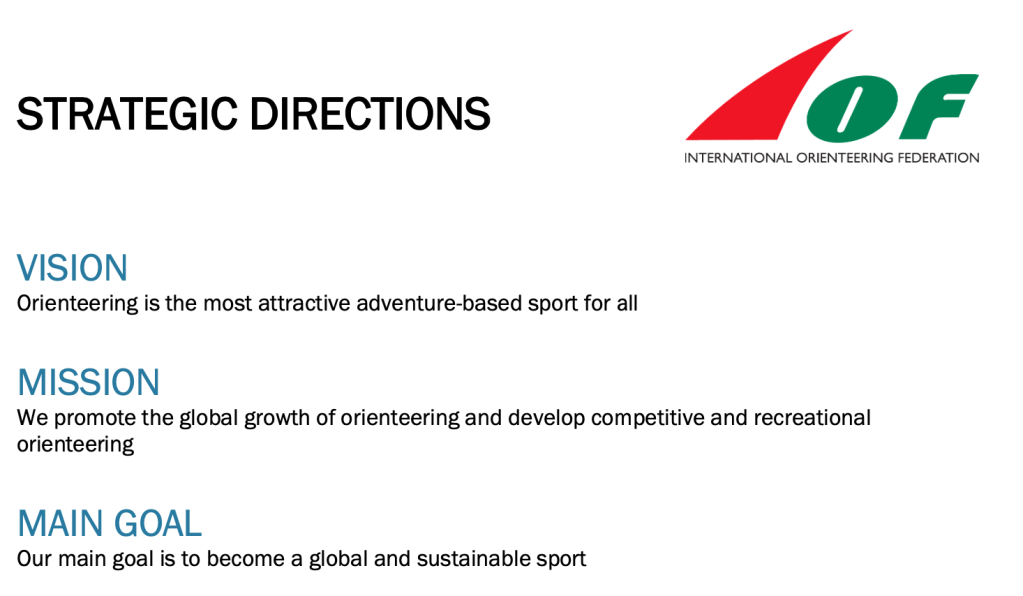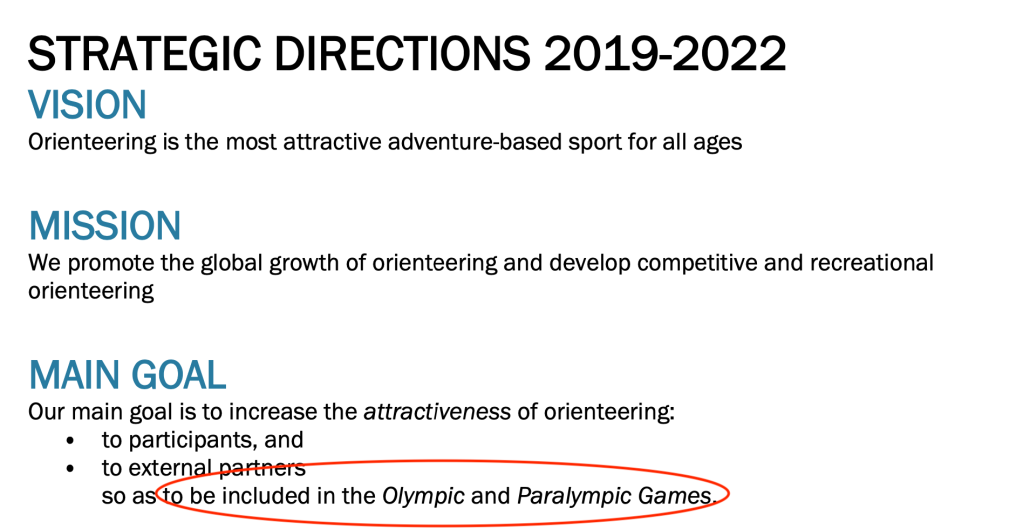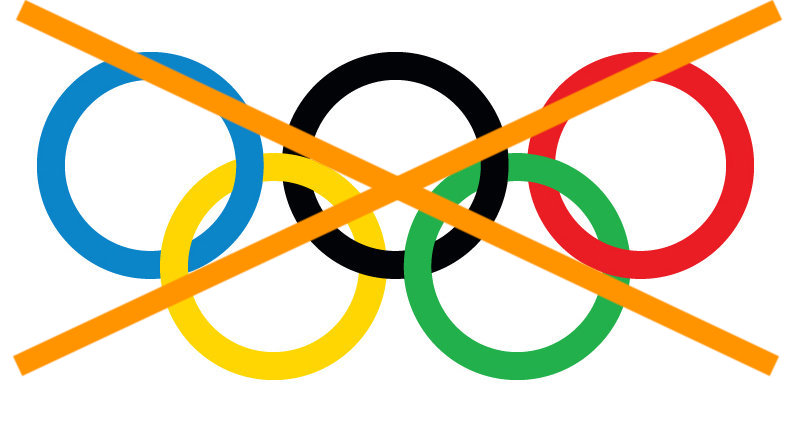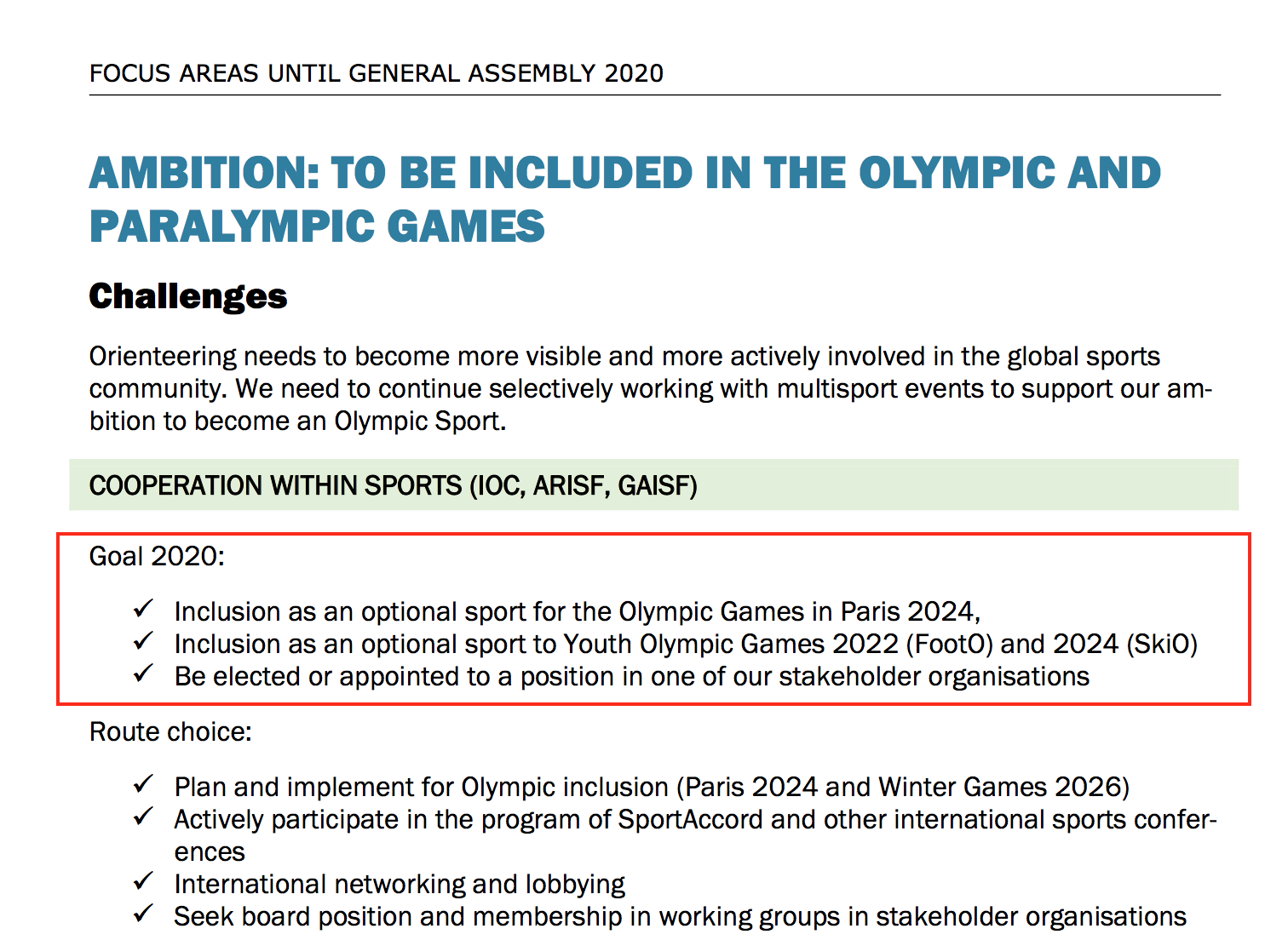The Olympic Dream was the guiding light of the IOF for decades. It was the driving force for many activities, and a substantial amount of money was spent to chase the Dream. It is still part of the Competition Rules in the form of the Leibnitz Convention. The IOF President has repeatedly confirmed his commitment to pursuing the Olympic Dream.
“Foot Orienteering has a chance and ski orienteering has a realistic chance to be a part of the Olympic Games program”.
Leho Haldna, IOF President (2016)
Yet, in 2022 the Olympic Dream was lost without a trace in the Strategic Directions proposed to the General Assembly by the IOF Council led by the same President. Not a single reference to the Olympics even in the proposed Strategic Initiatives (see pages p164-170 in the General Assembly Agenda)

Compare this to the strategic directions of 2019-2022, where the Main Goal was clearly anchored in the Olympic Dream.

The complete abandonment of the Olympic Dream is a 180-degree change of direction. This is the most significant change in our sport since the IOF decided to award World Championship titles – in the name of Olympic ambitions – to winners of D class street races, in addition to the mentally and physically toughest endurance athletes in the World.
Although there were hints at the last Presidents’ Conference that there could be changes in the Strategic Directions, the haste of complete abandonment of the Olympic Dream is stunning. It is probably best illustrated by the 2022 nomination of one of the IOF’s Vice Presidents (who used to represent Turkey, then Russia, and is now nominated again by Turkey for obvious reasons). As one of the Top 4 in the IOF Council, she firmly declares in her application that “I strongly believe that Orienteering deserves to be in Olympic Games and I hope to be able to make it true.” (p186 of the Agenda and Background Papers) Apparently, things happened so fast that even the IOF Vice President did not realize that the Olympic Dream was dead in the water.

Despite the radical change initiated by themselves, the IOF Leadership keeps a low and silent public profile like a cow drop in tall grass. Not a public word why chasing the Olympic Dream is no longer a good direction. Not a word about the potentially numerous implications of this change on the further development of our sport. Not a word about why the complete abandonment was necessary, not only putting it on the back burner for a while.
Personally, I am happy to hear that the IOF stops the pointless waste of money and volunteer time to pursue this pie-in-the-sky dream. I resigned as the Chair of the MTBO Commission in December 2016 when the IOF Council decided that each discipline commission shall evaluate its progress annually against some hazy Olympic criteria. The IOF Leadership could not give a fine thought to imposing pointless work on volunteers in the name of the Olympic Dream.
It is most interesting when pretty much the same Council (same President, 2 of the 3 Vice Presidents, 7 of the 11 members) suddenly makes a 180-degree turn and pretends as if the Olympic Dream was never there. A remarkable achievement of change of strategic direction that is only comparable to the smartest East European Communists who embraced capitalism and democracy overnight in 1990 just to stay in power.
In the context of this radical change of strategic direction, the silence of the IOF Leadership is a clear message to all orienteering volunteers around the world: it is not your business which way they steer your favorite sport.
Continue reading “The Olympic Dream – lost without a trace”
















